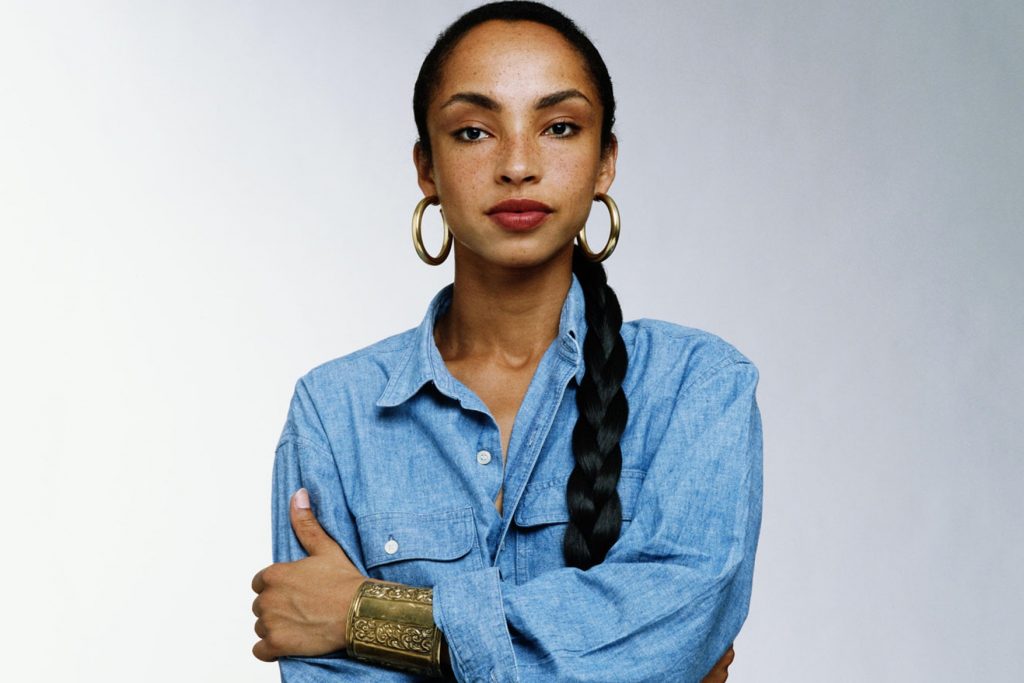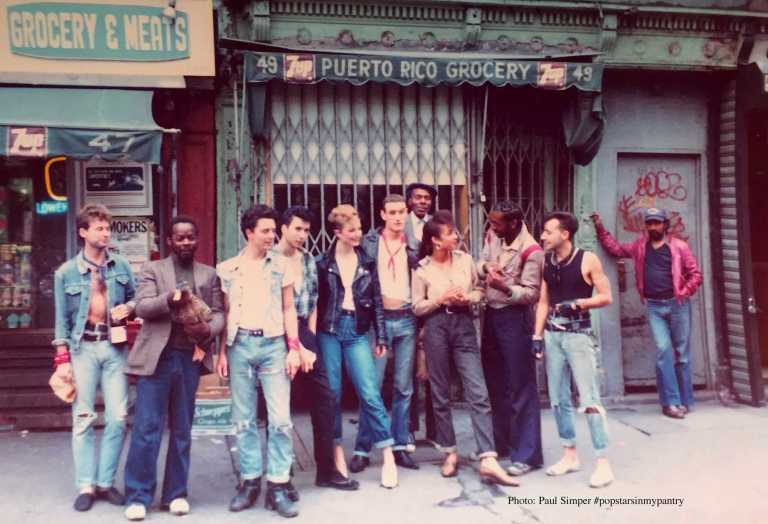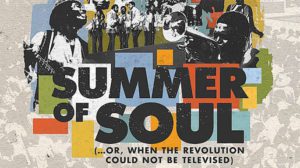Sade
by Kayla Ary

Helen Folasade Adu, better known as Sade, contributed her unique music style to the 1980s music world. She created a new sound by fusing smooth jazz with R&B and soul.
Artist History & Professional Career

Helen Folasade Adu was born in Ibadan, Nigeria on January 16, 1959. Her parents met in London at the London School of Economics and Political Science and, after getting married, moved to Nigeria. Helen Folasade Adu was never called by her first name, but by a shortened version of her middle name – Sade.
When she was four, her parents separated and she moved with her mother back to Essex, England where she was raised by her mother and her grandfather.
Sade enrolled in Central St. Martin’s College of Art and Design in London to pursue fashion and design. It was not until after she began her professional career that she got into the music scene. In the early 1980’s, she began singing backing for Pride, a Latin funk band.
“I used to get on stage with Pride, like, shaking. I was terrified. But I was determined to try my best, and I decided that if I was going to sing, I would sing the way I speak, because it’s important to be yourself.”
Sade had a segment during their shows where she fronted the quartet, which played quieter, jazzier songs.
Pride gained attention from record companies who wanted to sign Sade, but not the rest of the band. Eventually, they signed to Epic Records, U.K. and formed the band, Sade, with Stuart Matthewman on saxophone, Andrew Hale on keyboard, and Paul Spencer Denman on bass.
Sade’s first single “Your Love is King” was released in 1984. That same year, Sade recorded Diamond Life, her first album. It became a hit in England and, eventually, in the United States. “Smooth Operator” was one of her most popular singles from that album. She also released albums Promise, Stronger than Pride, and Love Deluxe – all of which were within the soul and pop genre. In 2000, however, she released Lovers Rock which had a more mainstream sound. “By Your Side”, a song in this album, caused her to gain new listeners who typically listened to genres that she had not previously adhered to.
Throughout her career, Sade made sure to keep her private life secret despite her popularity in music. She was married twice, both of which ended in divorce.
Discography
Influences
Sade was influenced by American soul music of the 70s. She listened to Curtis Mayfield, Donny Hathaway, Bill Withers, and the Jackson 5. When speaking about the Jackson 5, she stated:
"I was more fascinated by the audience than by anything that was going on on the stage. They’d attracted kids, mothers with children, old people, white, black. I was really moved. That’s the audience I’ve always aimed for”.
Contemporaries
Sade had a very different music style than her contemporaries. Yet, these artists still all influenced each other in one way or another. Her contemporaries include Anita Baker, New Edition, Michael Jackson, Prince, Whitney Houston, Phyllis Hyman, and Janet Jackson.
Anita Baker was a popular artist who began her career in the late 1970s with Chapter 8, a funk band. She was known for romantic soul and rhythm and blues. An influence in her style of music was her beginning in singing as a member of her church choir. Her hits include “Angel” (1983), “Sweet Love” (1986), and “You Bring Me Joy” (1986).
New Edition was a boy band quintet that reached the height of their popularity in the 1980s. They were known for their R&B hits and were highly influenced by the Jackson 5. Their hits include “Candy Girl” (1983), “Cool It Now” (1984), and “Mr. Telephone Man” (1984).
Michael Jackson, also widely known as the King of Pop, was another one of Sade’s contemporaries. He started off in the Motown group Jackson 5 and later moved on to become a hit pop singer. His album Thriller (1982) became one of the best-selling albums in history. A few of his hits include “Rock With You” (1979), “Bad” (1987), “Billie Jean” (1982), and “Smooth Criminal” (1988).
Prince was known for his falsetto voice and unique style. He began his career as a funk and soul artist with a disco music influence. He later incorporated jazz, punk, heavy metal, and hiphop. Prince also had a band called The Revolution. One of his hit albums Purple Rain was released in 1984. Some of his popular songs include “Little Red Corvette” (1983) and “When Doves Cry” (1984).
One of the best selling musical performers of the 1980s and 1990s, Whitney Houston was a gospel-based singer with pop success. She began singing in church as a child and later sang back up for Chaka Khan. “Greatest Love of All” (1986), “Saving All My Love For You” (1985), and “How Will I Know” (1985) were a few of her popular songs.
Phyllis Hyman is not as well known of an artist at current times, but was still influential to music in the 1970s, 80s, and 90s. She had a jazz sound in the beginning of her music career but later moved to urban pop and dance music. She also performed on Broadway in the musical, Sophisticated Ladies. Some of her songs include “You Know How to Love Me” (1979), “Living All Alone” (1986), and “Don’t Wanna Change the World” (1991).
Finally, Janet Jackson was another contemporary of Sade. Known for her dance-pop music, she was one of the most popular of the 80s and 90s. Janet Jackson defined this genre. She later began experimenting with contemporary electronic arrangements. She topped the R&B charts with his songs like “What Have You Done For Me Lately” (1986), “When I Think of You” (1986), and “Any Time, Any Place” (1993).
Social Involvement
Though Sade was not one of those musical artists known to be socially involved, her presence as a woman born from an interracial relationship was influential. Her father was Nigerian and her mother was English.
Sade was among the singers to perform at the Live Aid charity concert at Wembley Stadium in July of 1985.
"We all want the success....We all dreamed of that. That's what made us get out of bed in the morning very early when we'd been to bed very late, maybe, the night before. That's basically what pushed us along, just the hope that we would get success."
— Sade to BET's Donnie Simpson, promoting the U.S. release of Diamond Life
Awards
53RD ANNUAL GRAMMY AWARDS (2010) – win for Best R&B performance by a duo or group with vocals – “Soldier of Love”
44TH ANNUAL GRAMMY AWARDS (2001) – win for Best Pop Vocal Album – “Lovers Rock”
36TH ANNUAL GRAMMY AWARDS (1993) – win for Best R&B Performance by a Duo or Group with Vocal – “No Ordinary Love”
28TH ANNUAL GRAMMY AWARDS (1986) – win for Best New Artist
Conclusion
Sade’s fusion of smooth jazz and R&B and soul brought a unique music style to the 1980s. Her music later influenced the 90s neo-soul genre sung by artists such as Erykah Badu, Janet Jackson, and Lauryn Hill.
Bibliography:
Braimah, Ayodale. “Sade (1959- ).” BlackPast, 22
Dec. 2018, https://www.blackpast.org/african-american-history/sade-1959/.
“Sade.” Biography, https://www.biography.com/musician/sade.
“Sade.” Grammy Awards, https://www.grammy.com/grammys/artists/sade/8051
Sade. https://www.sade.com/.
“Sade 1984 Interview.” Youtube, uploaded by
Zeke62 Nostalgia, 2 Feb. 2016, https://www.youtube.com/watch?v=I4dtyFq7Afk.
Smith, Danyel. “Sade Saves.” NPR Music, 11 Nov.
2020, https://www.npr.org/2020/11/11/933080759/sade-saves-lovers-rock-20th-career-retrospective.








